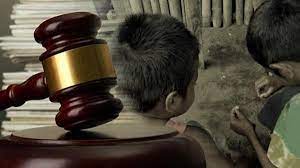Juvenile Justice Amendment Bill, 2021:

The Juvenile Justice (Care and Protection of Children) Amendment Bill, 2021, was passed in the Rajya Sabha.
- The bill seeks to amend the Juvenile Justice Act, 2015.
- The National Commission for Protection of Child Rights (NCPCR) audit of Child Care Institutions (CCIs) in 2020, 90% of which are run by NGOs, found that 39% CCIs were not registered, even after the 2015 amendment was brought in.
- It also found that less than 20% CCIs, especially for girls, had not been set up in some states, 26% child welfare officers were not there.
- Moreover, three-fifths have no toilets, one-tenth have no drinking water and 15% of homes don’t have provisions for separate beds or diet plans.
- Rehabilitation of children is not a priority for childcare homes and children are reportedly kept in such institutions to get funds.
Key Amendments Proposed by the Bill:
- Serious Offences: Serious offences will also include offences for which maximum punishment is imprisonment of more than seven years, and minimum punishment is not prescribed or is of less than seven years.
- Serious offences are those for which the punishment under the Indian Penal Code or any other law for the time being is imprisonment between three and seven years.
- Non-cognizable Offences:The present Act provides that an offence which is punishable with imprisonment between three to seven years to be cognizable (where arrest is allowed without warrant) and non-bailable.
- The Bill amends this to provide that such offences will be non-cognizable.
- Adoption: Presently, the adoption order issued by the court establishes that the child belongs to the adoptive parents. The Bill provides that instead of the court, the District Magistrate (including Additional District Magistrate) will issue such adoption orders.
- Appeals: The Bill provides that any person aggrieved by an adoption order passed by the District Magistrate may file an appeal before the Divisional Commissioner, within 30 days from the date of passage of such order.
- Additional Functions of the District Magistrate: These include: supervising the District Child Protection Unit, and conducting a quarterly review of the functioning of the Child Welfare Committee.
- Designated Court: The Bill proposes that all offences under the earlier Act be tried in children’s court.
- Child Welfare Committees (CWCs): It provides that a person will not eligible to be a member of the CWC if he/she
- has any record of violation of human rights or child rights,
- has been convicted of an offence involving moral turpitude,
- has been removed or dismissed from service of the central government, or any state government, or a government undertaking,
- is part of the management of a child care institution in a district.
- Removal of Members: The appointment of any member of the committee shall be terminated by the state government after an inquiry if they fail to attend the proceedings of the CWCs consecutively for three months without any valid reason or if they fail to attend less than three-fourths of the sittings in a year.




